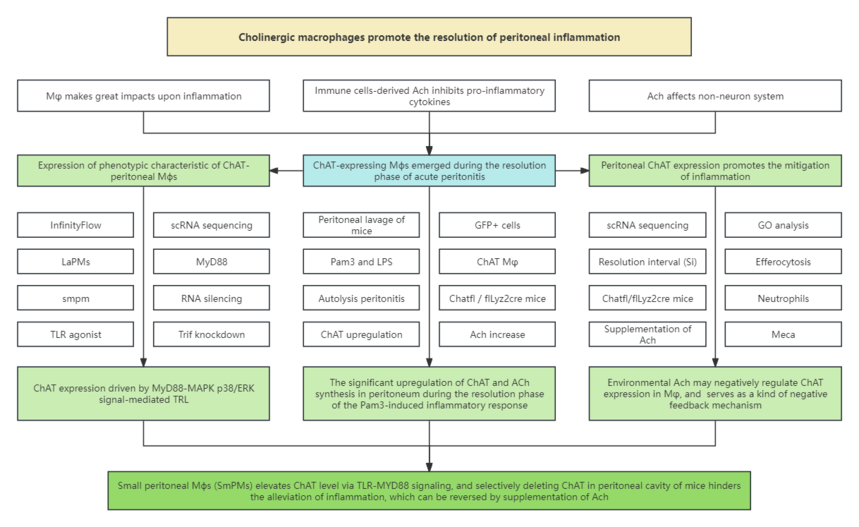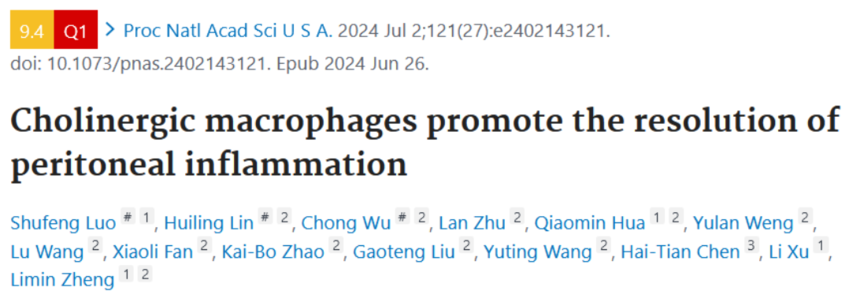Next, we will share a paper published on PNAS (IF of 9.4), entitled Cholinergic macrophages promote the resolution of peritoneal inflammation, hoping to bring difference inspirations.
1. Research background
1.1 Macrophages play critical roles in initiation, promotion and alleviation of inflammation. At the decomposition stage, some cells clear dead cells through exocytosis and produce anti-inflammatory mediators that are indispensable for tissue repair and restoration of microenvironmental homeostasis.
1.2 Acetyl choline (ACh) is known for its neurotransmitter action in muscle contraction, neuron communication and vasodilatation, and its impact on non-neuron system has been gradually recognized.
1.3 Various immune cells, including T cells, B cells, NK cells, and fat resident cardiomyocytes, have been proven to conditionally express ChAT that can catalyze ACh to produce a rate-limiting effect.
1.4 Immune cells-derived Ach plays an upstream- and downstream-dependent role in immune regulation, enhances anti-viral response, and meanwhile, suppresses production of pro-inflammatory cytokines.
2. Technical routes

3. Research results
3.1 ChAT-expressing Mϕs emerges during the resolution phase of acute peritonitis.
3.2 Expression of phenotypic characteristic of ChAT-peritoneal Mϕs
3.3 ChAT expression driven by MyD88-MAPK p38/ERK signal-mediated TRL
3.4 Peritoneal ChAT expression promotes the mitigation of inflammation
3.5 Mφ phagocytosis is enhanced by Ach through nicotinic Ach receptors
4. Conclusion
The role of ChAT, which catalyzes the biosynthesis of ACh, in bone marrow cells is little known. Herein, the authors discovered a substantial population of Mϕs expressing ChAT that can synthesize ACh during the resolution phase of acute peritonitis. Furthermore, the authors observed a significant upregulation of ChAT in monocyte-derived SmPMs under the influence of Toll-like receptor agonists and bacterial infections. These SmPMs differ from tissue-resident LaPMs in phenotype and transcription, upregulating ChAT expression through a MyD88-dependent pathway, which is attenuated by TRIF-dependent TLR signaling pathways. Functionally, the absence of Chat in Mϕs leads to an apparent decrease in peritoneal ACh levels, reduced clearance of apoptotic neutrophils, and delayed resolution of peritonitis, which can be reversed by the supplementation of exogenous ACh. However, despite B lymphocytes being a notable population expressing ChAT in the peritoneal cavity, the absence of ChaT in B cells does not greatly alter the resolution process of peritonitis. These findings emphasize the critical role of Mϕ-derived ACh in the resolution of inflammation and the importance of the non-neuronal cholinergic system in immune regulation.


